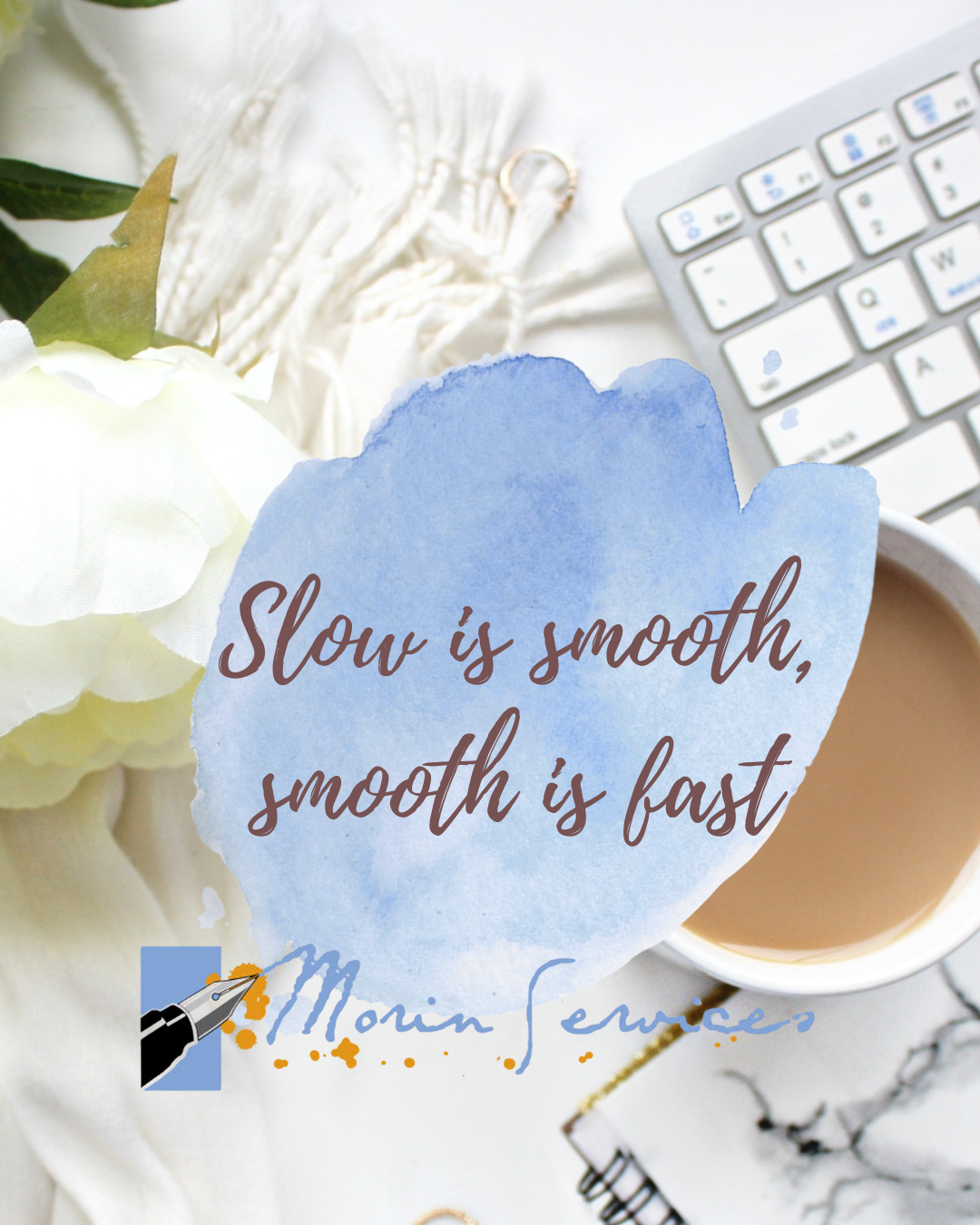What Does “Slow is Smooth, Smooth is Fast” Mean?
This phrase comes originally from the military, where precision and clarity under pressure are critical. But in business, it’s been adapted to mean:
When you slow down and act with intention, things run more smoothly—and smooth systems move faster and more efficiently in the long run.
In contrast, hustling nonstop can lead to rushed decisions, burnout, errors, and missed opportunities.
Why This Trend Matters Now
Business owners are tired. After years of “rise and grind” messaging, many are realizing that sustainability > speed.
“Sustainability > speed” means that building something steady, healthy, and long-lasting is more valuable—and ultimately more effective—than trying to achieve results as quickly as possible, especially if that speed leads to burnout, mistakes, or short-term thinking.
Let’s break it down:
Sustainability
- You work at a pace you can maintain over time without sacrificing your health, relationships, or passion.
- You make thoughtful decisions, invest in quality, and set realistic goals.
- You build routines, processes, and client relationships that last.
Speed (without sustainability)
- You rush to finish, take on too many projects, or say yes to everything.
- You might grow fast but risk breaking systems, burning out, or delivering lower-quality work.
- You may get short-term gains, but at the cost of long-term success.
Real-Life Example
As a part-time translator with a full-time job, sustainability means:
- Taking on the number of projects you can actually handle well.
- Prioritizing client relationships and repeat work over quantity.
- Saying “no” to rush jobs if they would compromise your schedule or peace of mind.
You could technically speed up and take on more work—but what happens then? You lose sleep, feel pressure, and risk making errors. That’s not sustainable.
The new wisdom of “Slow is smooth, smooth is fast” is about:
- Working with clarity, not chaos
- Prioritizing deep work over multitasking
- Focusing on relationships, not just transactions
- Building systems that serve your life—not the other way around
This is especially relevant for solopreneurs and multi-career professionals (like me!), where time and energy are finite resources.
Slow Thinking = Smart Thinking
Embracing this mindset helps you:
- Make better decisions. You’re not reacting, you’re responding.
- Avoid burnout. You create space to rest and reflect.
- Build quality over quantity. That applies to client work, marketing, even how you learn new skills.
Think of it like this: A translator who works carefully and communicates clearly avoids revisions, rework, and client confusion—ultimately saving time and protecting reputation.
Practical Ways to Embrace “Slow Is Smooth” in Business
Here’s how to live this principle as a business owner:
- Plan weekly, not just daily.
Think ahead, not just about today’s tasks. - Simplify your services.
Offer what you do best. Don’t chase every trend or client request. - Build smooth systems.
Use templates, checklists, and clear workflows to avoid reinventing the wheel. - Block time for deep work.
Fewer interruptions = better focus = smoother progress. - Pause before saying yes.
A thoughtful “maybe later” can be better than a rushed “yes” that causes stress. - Review, reflect, refine.
Take time each month to ask: What worked? What didn’t? What can I improve?
The Long-Term Payoff
When you embrace slow, intentional work, you:
- Build a solid reputation
- Avoid the feast-or-famine cycle
- Enjoy your work more
- Create space for future opportunities
Smooth becomes fast when your business feels like a calm current instead of a crashing wave.
Final Thought
You don’t have to rush to be successful. You can grow at your own pace, protect your energy, and still build something meaningful.
Because in business and in life, sometimes the slowest route is the most direct path to your version of success.
Written with the support of ChatGPT by OpenAI to help shape and clarify my ideas.

